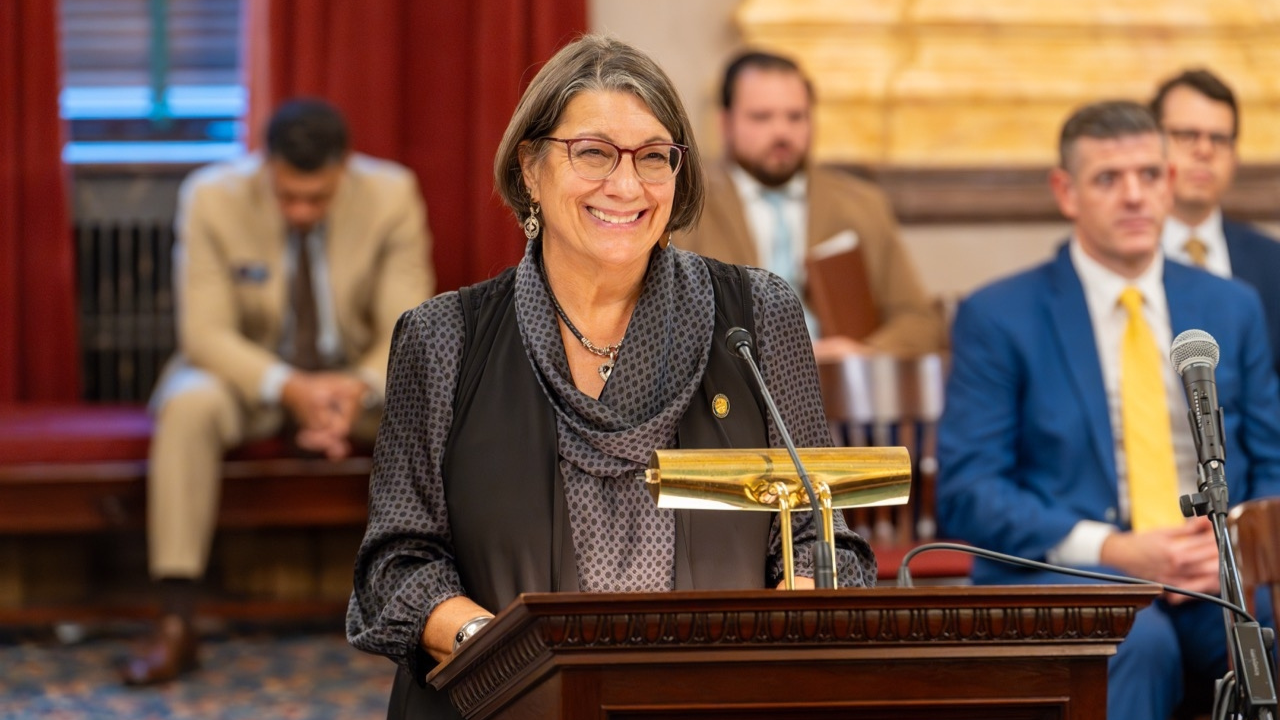COLUMBUS, Ohio (WCMH) — Previously bipartisan legislation to ban discrimination against the LGBTQ+ community is again being proposed at the Ohio Statehouse, but without Republican support.
Named the “Ohio Fairness Act,” the legislation has been reintroduced for the 12th time and would prohibit discrimination based on sexual orientation and gender identity or expression, without creating new protected classes or infringing on religious liberty. Sen. Nickie Antonio (D-Lakewood), Ohio’s first openly gay Statehouse lawmaker, has proposed the bill in every General Assembly since she was elected in 2010. Watch a previous NBC4 report on the Fairness Act in the video player above.
While the act has never passed the Statehouse to be signed into law, the proposal has traditionally received bipartisan support. Every member of the Senate Democratic Caucus and two Republican senators co-sponsored the bill when it was reintroduced for the 11th time during the summer of 2023. The time before that, the act was sponsored by former Sen. Michael Rulli, who now holds a seat in the U.S. Congress, and was co-sponsored by Sen. Matt Dolan (R-Chagrin Falls).
Now, the Fairness Act is only co-sponsored by the Ohio Senate’s eight other Democrats. Although Antonio hasn’t spoken to her Republican colleagues on why they aren’t supporting the bill this General Assembly, she said she’s disappointed and hopes some join the proposal’s co-sponsorship list later on.

“I would guess that every single member of the General Assembly knows someone, either a friend or a coworker, a family member, a neighbor, from the LGBT community,” Antonio said. “I want to ask them, how do you face those people and not support them having equal rights? Because that’s really what support for this bill means and if you’re not supporting the bill, it means that you’re not willing to take a stand for folks.”
The legislator has long argued the act is needed given Ohio is one of more than two dozen states without nondiscrimination protections for members of the LGBTQ+ community. Last year, Out Leadership’s state climate index labeled Ohio as under “notable risk” for LGBTQ+ discrimination given an individual can be fired from their workplace, denied services and rejected or removed from housing based on their sexual orientation or gender identity.
Ohio Business Competes, a nonpartisan coalition of more than 1,350 businesses, echoes Antonio and advocates for nondiscrimination policies to attract the best employees. The coalition includes OhioHealth, Huntington, American Electric Power, Jeni’s Ice Cream, Ohio State University, Cleveland Clinic and many more companies, universities and institutions.
Dwayne Steward, executive director of Equality Ohio, which organizes Ohio Business Competes, said in a statement the group’s commitment “remains steadfast, regardless of shifting political dynamics,” and that the coalition is “relaunching with a renewed focus on highlighting businesses that continue to champion equality.”
To draw in the best and brightest workers to Ohio, the state needs to reassure prospective residents that they’re welcome here no matter their family makeup, Antonio argued. The lawmaker said she is especially concerned those employee recruitment efforts are hindered following last year’s approval of several Statehouse bills that opponents deem “anti-LGBTQ+,” and given the Trump Administration’s executive orders encouraging private companies to roll back diversity, equity and inclusion programming.
“I’ve had the occasion, in the past couple of weeks, having a conversation with a staffer who is looking for a state to go to rather continue to work in the state of Ohio; a very talented person who doesn’t feel that the state is open and welcoming,” Antonio said. “I also just participated in a goodbye dinner for a previous staffer who is going to Colorado because one of the things she knows about Colorado is she is much more welcome there than she is in the state of Ohio.”
Lawmakers have failed to repeal Ohio’s dormant same-sex marriage ban, ban anti-LGBTQ+ techniques known as “conversion therapy” and remove antiquated HIV criminalization laws passed in the 1980s. Instead, the Statehouse has passed a bill to ban certain healthcare for transgender youth and education legislation that opponents say will result in the “outing” of students, which caused an increased number of LGBTQ+ youth to call a crisis hotline.
The Fairness Act has again been assigned to the Senate Government Oversight Committee, where it received just one hearing last General Assembly. Although the bill lacks Republican support, Antonio is hopeful that her proposal will at least get one hearing where she will get to testify before her colleagues.
“There’s no closet big enough to put all the LGBTQ+ people back in, we’re not going,” Antonio said. “It’s important to talk about the fact that this is the right thing to do. This is the pragmatic, business-friendly, economically advancement thing to do in this state.”










